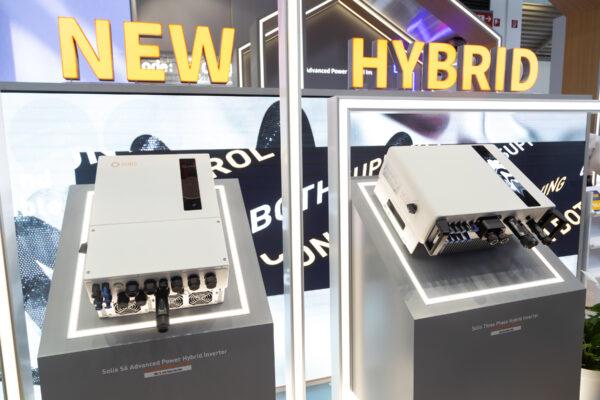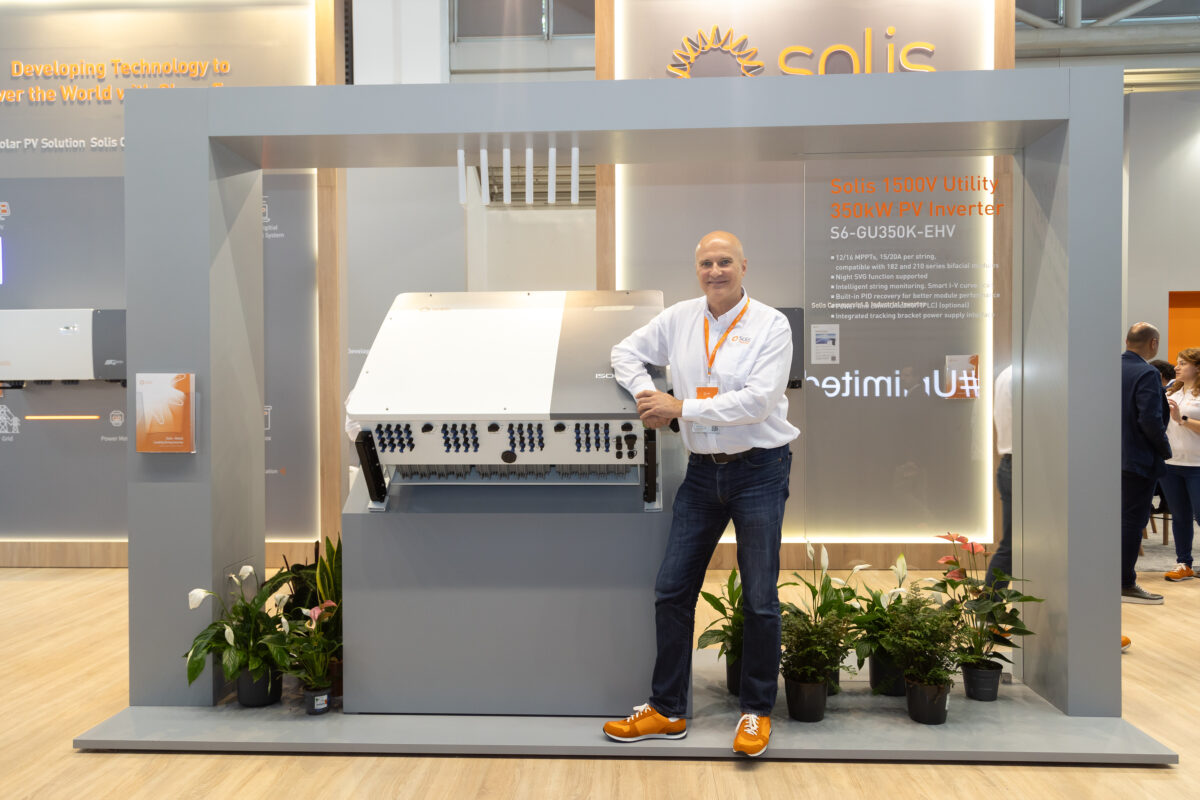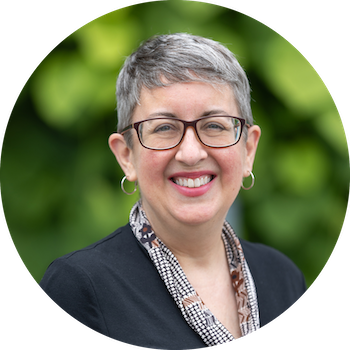Gregory Lukens is the new Director Utility Europe for Solis, a brand of Ginlong Technologies. In this interview, Lukens discusses his background in the solar industry, Solis' dedication to string inverters, and the company's big push into the utility-scale scene in Europe.
pv magazine: Thanks for your time today, Gregory. When did you join Solis?
Gregory Lukens: Three months ago.
Can you tell me a bit about your experience before joining Solis?
Lukens: I’m an old dog and have been around a few tricks through the years. The last 20 years, I’ve been based in Madrid, Spain, and I’ve been working during that time in solar photovoltaics. I don’t think I’m one of the earliest pioneers in Spain, but we were among the early guys moving around trying to make business back in the day.
Was that in project development?
Lukens: At that time, it was project development, particularly in the commercial and industrial (C&I) sector. We undertook various projects, including shopping malls and installations for IKEA. I had founded the company, called OpcionDos, with Spanish partners in 2011. In 2011, AEG Power Solutions, a German company, acquired us, marking my entry into the realm of utility-scale solar.
AEG Power Solutions was involved in manufacturing central inverters across different locations like Germany, South Africa, India, and the US. However, there were significant bankability challenges associated with their operations. Subsequently, I joined PV Hardware (PVH), a renowned global tracker company. They had acquired a startup based in California and approached me to assist in Europeanizing the company, which was an ironic twist given my American background. This marked the beginning of a new chapter for PVH.
After spending a few years at PVH, I was recruited by KACO, a German inverter manufacturer later acquired by Siemens. My role primarily involved their European business, but I also became involved in their North American operations due to the presence of their headquarters in San Antonio, Texas.
In 2018, I joined Huawei Spain when the company decided to venture into the solar business. Until that time, Spain was grappling with a moratorium and numerous challenges, leading to minimal activity in the solar industry.
The sun tax…
Lukens: The sun tax, and then, in 2017, the government launched a 4 GW tender and they announced the winners, and that’s when Huawei said, “Oh, I think there’s a market there now.” And that’s when the business started, so I was part of the original team of five or six people.
And how did you decide to make the switch to Solis?
Lukens: While working with Huawei, I gained experience in various global markets, including Spain, Chile, Australia, and Mexico. Solis presented me with an exciting opportunity, and I appreciate their strong focus on their core business. Unlike some other companies, Solis remains dedicated to string inverters and does not venture into other areas like chargers. This focus aligns well with my approach.
Popular content
Where do you think the competition between string and central inverters currently stands?
Lukens: Personally, I am not a fan of central inverters. They often bring numerous challenges and complications. In contrast, I strongly believe in the benefits of string topology, which offers superior reliability, performance, and operation and maintenance advantages. Solis shares this perspective and aims to support the deployment of string topology in the utility-scale segment, which is widely recognized as the optimal solution by advanced and forward-thinking companies.
Besides inverters, what other components are crucial in utility-scale projects?
Lukens: While the inverter is an essential component, there are other pieces to the utility-scale puzzle. These include communication hardware, such as power plant controllers, and mid-voltage stations.
What are your priorities and focus areas as the Director Utility Europe for Solis?
Lukens: Currently, I'm focusing on completing the certification of our existing machines for the remaining European markets. This process will be finalized in the coming months. Additionally, I'm working on the puzzle pieces I mentioned earlier, which involve communication hardware and mid-voltage stations. At this stage, I'm not actively engaged in sales but rather concentrating on laying the groundwork and hiring the right salespeople. We are targeting some quick wins where customers only require inverters.

Image: pv magazine
Does Solis already have utility-scale sales and ongoing projects in Europe?
Lukens: At present, Solis does not have utility-scale sales or ongoing projects in Europe. While the company has successfully developed utility-scale business in China, India, and the United States, they hadn't previously hired a leader to drive the expansion in Europe. My role is to change that by building expertise, fostering dialogue with our colleagues in China, and ensuring Solis becomes a significant player in the European utility-scale market.
What are the challenges on the R&D side of utility-scale solar?
Lukens: In my opinion, we should explore adding an additional software layer to enhance our offerings. This layer could encompass data analysis, visualizations, and predictive modeling to optimize performance and predict failure rates. Although this may be a consideration for 2024-2025, we need to differentiate ourselves beyond hardware. While hardware innovations like new materials or improved integration with customer SCADA systems are possibilities, the focus should also be on software enhancements.
Lastly, how does bankability differ when transitioning from rooftop to utility-scale projects?
Lukens: Bankability is a critical aspect when it comes to utility-scale solar. The utility-scale market involves professional purchasers and rigorous scrutiny from purchasing departments. ESG requirements are gaining prominence, and stakeholders, including off-takers and project banks, thoroughly assess projects. Solis has an excellent opportunity in this market, as our strong focus on string inverters aligns well with the expectations and demands of utility-scale customers.
This content is protected by copyright and may not be reused. If you want to cooperate with us and would like to reuse some of our content, please contact: editors@pv-magazine.com.




1 comment
By submitting this form you agree to pv magazine using your data for the purposes of publishing your comment.
Your personal data will only be disclosed or otherwise transmitted to third parties for the purposes of spam filtering or if this is necessary for technical maintenance of the website. Any other transfer to third parties will not take place unless this is justified on the basis of applicable data protection regulations or if pv magazine is legally obliged to do so.
You may revoke this consent at any time with effect for the future, in which case your personal data will be deleted immediately. Otherwise, your data will be deleted if pv magazine has processed your request or the purpose of data storage is fulfilled.
Further information on data privacy can be found in our Data Protection Policy.